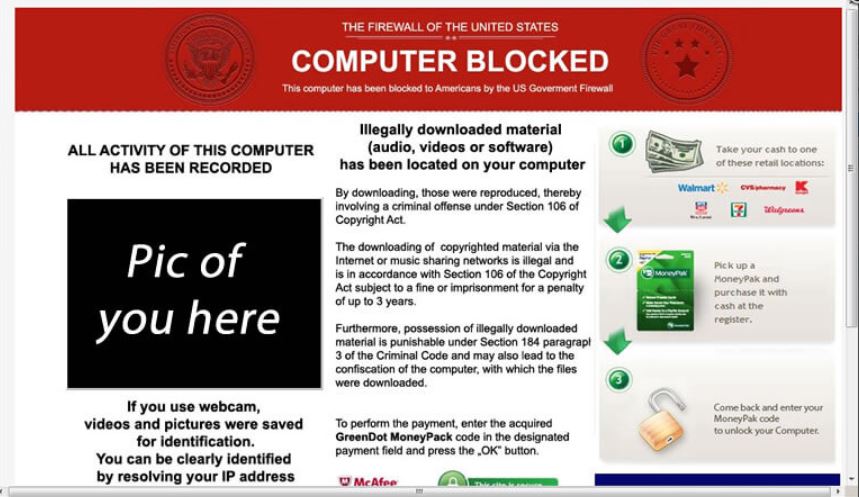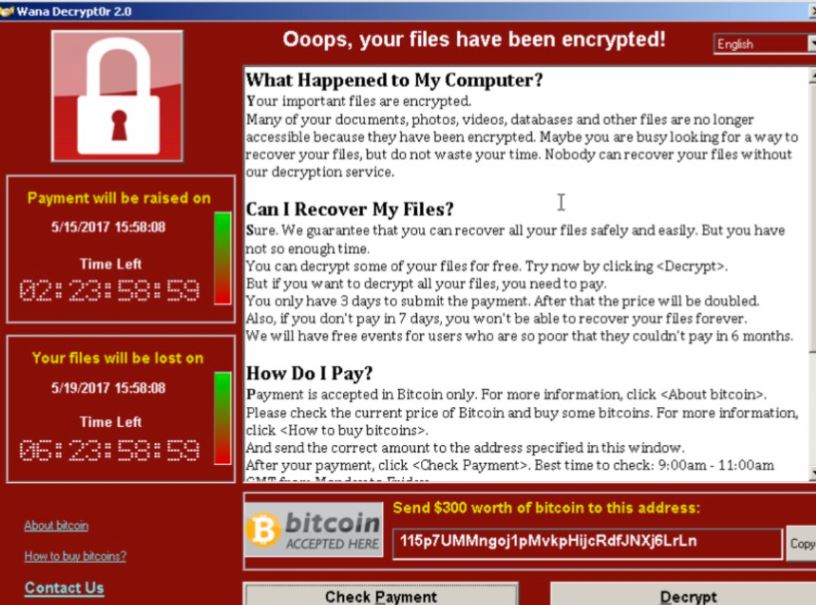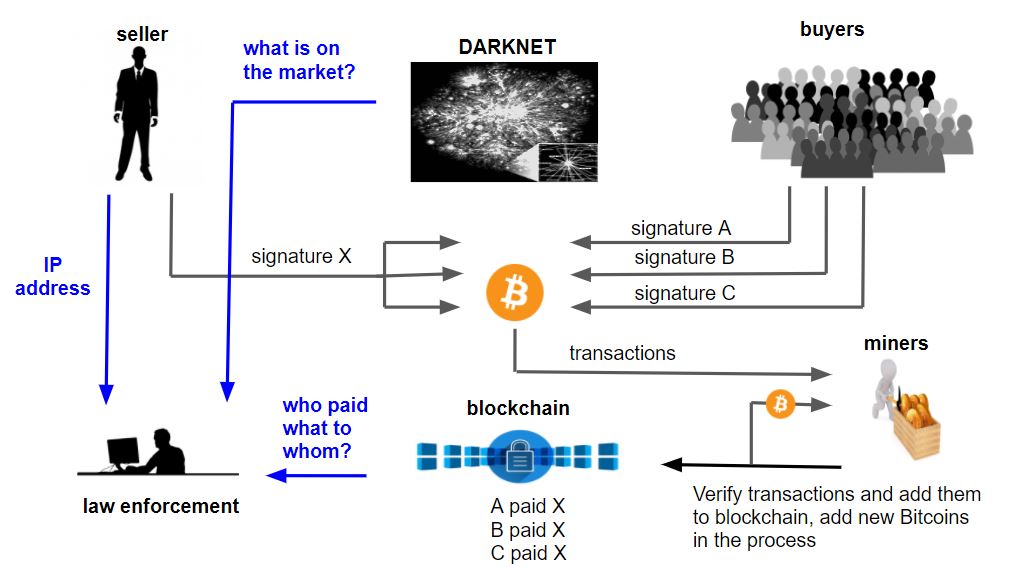
by Admin | Anti-money laundering
Cryptocurrency use is still in its infancy.
Cryptocurrencies have been in use around the world, especially in the developed world (Africa) ever since they came onto the scene after the end of the global financial crisis in 2009. In Europe, the US and industrialized parts of Asia they have become mainstream currencies.
However, in Africa in general and Ghana in particular, cryptocurrency use is still in its infancy. A few weeks ago, Ghana’s central bank, the Bank of Ghana, was compelled to even issue a statement on cryptocurrencies and their use in Ghana. The Bank of Ghana in its statement sought to give the impression that cryptocurrency usage in Ghana was not yet formally regulated and therefore cautioned the general public to be careful in dealings involving cryptocurrencies especially with institutions that purport to deal in them.
Dealing with cryptocurrencies is illegal?
This statement from the Bank of Ghana was a bit confusing for many people because some people interpreted it to mean that dealing in cryptocurrencies in Ghana was somehow illegal. However, all that the Bank of Ghana sought to do was to make the statement that it had not yet put in place regulations with respect to cryptocurrencies as a means of payments. The Bank of Ghana is responsible for regulating all payments and payment systems in Ghana.
A few of the players in the country who deal in cryptocurrencies granted interviews to media houses to correct the impression that dealing with cryptocurrencies was illegal. They had to assure the public that what the Bank of Ghana really meant by its statement was just to alert the public that it has not yet put in place binding regulations on cryptocurrencies to protect them from potential fraudsters and that it was in the process of consulting with relevant stakeholders and formulating the needed regulations for cryptocurrency usage in Ghana.
Has Ghana been slow at cryptocurrency adoption to compare with other African states?
Cryptocurrencies have been in use by people in Ghana for a few years now. However, their usage in Ghana is not currently big enough as compared to other African states like South Africa and Kenya. South Africa and Kenya have a more developed and vibrant cryptocurrency regime as compared to Ghana. Ghana has been slow at cryptocurrency adoption mainly because e-commerce generally is in its infancy as compared to other places on the African continent and beyond. Regulation in Ghana also only arises when an activity becomes so prominent that abuses are feared by regulators, consequently regulation is generally slow.
The Future for cryptocurrencies in Ghana.
All this notwithstanding, cryptocurrency usage in Ghana appears to have a bright future because it appears to be following the pattern of “mobile money” evolution in Ghana and Africa. Mobile money usage in Ghana and Africa was not keenly welcomed by the central bank and other financial institutions at the onset. Now mobile money transactions form a chunk of all financial and payment transactions in Ghana and many other African countries, simply for its convenience and ease of usage. I predict the same for cryptocurrency usage in Ghana in particular and Africa in general especially when the needed regulations are finally put in place.
It will definitely catch on!
“Top Misconceptions of Cryptocurrency as a Payment System”

Which can be read on Amazon Kindle Unlimited for Free You can find more interesting articles by visiting us on one of the following platforms: AML Knowledge Centre (LinkedIn) or Anti-Bribery and Compliance at the Front-Lines (LinkedIn)

by Admin | Cryptocurrency, Terrorist financing
The rising popularity of cryptocurrency and blockchain technology has brought many benefits to the world; however, this hasn’t come without a few downsides. Along the way, we have also seen a rise in the number of cryptocurrency crimes. From kidnappings to money laundering and many more types of crime, police and governments around the globe are looking to coordinate efforts in order to stop crypto criminals. In this article, we’ll take a look at some example cases and how law enforcement is handling them.
ICO Scams
ICO scams are one of the most common types of cryptocurrency crimes. Oftentimes, project teams are completely fictitious. As during any ICO, investors send ETH, BTC, USD, and/or other currencies to the wallets of the project. The only difference is that fake projects keep the funds and give no tokens whatsoever in return. Most often, these scams involve fake project team profiles, which sometimes even include big-name entrepreneurs like Richard Branson.
One ICO for a project called Miroskii used a photo of actor Ryan Gosling for a profile of a fake graphic designer named “Kevin Belanger”. While it might appear evident to some or even most people that this was a fake profile, this fraudulent ICO actually claimed to have raised $830,000. Little is known about the consequences of such a scam since there is currently no info online about any charges against the project. Even the project website is still running; however, you won’t find the profile for “Kevin Belanger” or anyone else on the team any more.
The ICO scam issue is so bad that the United States Federal Trade Commission (FTC) will be discussing this as part of its workshop in Chicago on June 25, 2018, at DePaul University. One of the biggest problems with ICO scams is the overall lack of regulatory framework in place for public fundraising at a national level. In the US, for instance, states like Texas have been the most proactive in banning certain cryptocurrency projects and ICOs that are deemed to be fraudulent.
Robbery
It’s bad enough when someone loses money due to a cryptocurrency exchange hack or an ICO scam but there are even worse ways to get funds stolen. There have been quite a few incidents of robbery and kidnappings involving cryptocurrency. During one such incident in Dubai, a gang of ten individuals pretended to be in charge of issuing mandated trade licenses for the cryptocurrency. Two brothers who were looking to purchase trade licenses were carrying around $1.9 million in cash. The gang impersonating the trade license issuers stole the cash from the two brothers and also assaulted them. Since that time, the ten suspects have been apprehended and referred to public prosecutors.

In another incident, Louis Meza, a man from New Jersey, even kidnapped his friend and stole $1.8 million in cryptocurrency. Meza lured his friend into a minivan and a gunman pointed a pistol at the friend, demanding his 24-word passphrase to access the victim’s Ledger Nano S wallet. Meza also looted the victim’s apartment, stealing a ledger and other information. While a lot of cryptocurrencies are designed to make the transfer funds untraceable or at least rather difficult to track, Meza made two key mistakes.
First, there was surveillance video showing him enter the victim’s apartment. Second, he used a popular cryptocurrency exchange to transfer stolen funds from ETH to BTC. The account’s public address included his own name, which gave a lot of evidence linking Meza to the crime. Meza pleaded not guilty to grand larceny, kidnapping, robbery and related counts at his arraignment in the Manhattan Supreme Court in December 2017. The judge ordered $1 million bond or $500,000 cash bail.
Money Laundering
There have already been a few large-scale cases for money laundering via cryptocurrency. Thomas Mario Costanzo allegedly used cryptocurrencies to launder proceeds for drug dealers. Costanzo was arrested during a USDHS-coordinated raid in April 2017. Evidence also shows that Costanzo used crypto to buy drugs and offered an online cryptocurrency exchange service for other people to purchase drugs without adding the required KYC authentication process.
The possible sentence for such crimes is rather hefty. The five charges placed on Costanzo can bring a maximum sentence of 20 years in prison, a $250,000 fine, or a combination of the two. In addition, any cryptocurrencies used in these crimes could be taken away by the U.S. Justice Department. The sentencing will take place on June 11, 2018.
There have even been some cases requiring international law enforcement cooperation. One recent example involved authorities from Finland, Spain, the United States, and Europol. In this case, 137 individuals were investigated and 11 were ultimately arrested in April 2018. Originally, criminals laundered drug money from Spain to Colombia using credit cards.
The group realized quickly switched to cryptocurrencies after realizing the easy traceability of traditional bank accounts. Nonetheless, law enforcement officials from Europol were able to track down criminals by monitoring crypto-to-fiat exchange transactions (Colombian pesos). Europol has stated that it is committed to giving additional cryptocurrency crime detection training to its officers. It will also continue to coordinate to stop such crimes both within the EU and beyond.

The Future of Crypto Crimes
Undoubtedly, crimes related to cryptocurrency will continue to rise as the popularity of cryptocurrency in general rises. Even though there are many good aspects of a crypto-based economy (i.e. greater transaction privacy, users control over funds, and freedom of capital flow), these same benefits do bring new potential challenges to stopping crimes of the present and future. In some instances, criminals might still leave behind evidence that can be tracked.
However, it is also likely that cryptocurrency crimes will become more intricate and potentially even more difficult to stop than traditional crimes attached to fiat currency. As criminals become smarter, it is clear that law enforcement agencies will have to remain on top of changes in emerging technologies as they relate to criminal activity.
written by Delton Rhodes

This article was originally published on Coincentral: https://coincentral.com/crypto-crimes-ico-scams-robbery-and-money-laundering/
“Top Misconceptions of Cryptocurrency as a Payment System”

Which can be read on Amazon Kindle Unlimited for Free You can find more interesting articles by visiting us on one of the following platforms: AML Knowledge Centre (LinkedIn) or Anti-Bribery and Compliance at the Front-Lines (LinkedIn)

by Admin | Cryptocurrency
Over the weekend, Circle-owned Poloniex exchange froze a slew of user accounts in the midst of implementing a new know your customer (KYC) verification process.
Legacy account users, those whose accounts were verified under Poloniex’s old guidelines, reportedly received emails from Poloniex support requesting that they comply with the new verification method. The email asks that each legacy account provides “a verification photo…as well as a photo of a valid government-issued ID card or passport.” Each account holder has 14 days to complete the verification, under which time account functions will be suspended.
Community members took to a variety of social media to vent their frustrations over the change in KYC policy and subsequent account limitations. Many legacy account holders complain that they were blindsided by the developments, further lamenting that, even after complying with the new verification, their accounts were still frozen.
“They are not giving us ANY time to move funds, its [sic] already frozen, and verification is not working for most!”, Reddit user danglingpiledriver complains on the r/Poloniex subreddit. “They said the following in December, yet never gave us the exact date. its [sic] locked NOW without warning: “The exact date for this deadline will be announced in Q1 2018. While you will be given advance notice before this requirement goes into effect, we encourage you to verify your legacy account now…’”, the post continues.
The Reddit user is referring to a press release Poloniex posted at the end of December 2017 that alerts its customers to the KYC change. After an announcement in Q1 of this year, the release states, customers will be expected to comply with the new KYC policy. Among other suspensions, the release indicates that users who fail to verify their accounts by the announced deadline will have their trading privileges revoked and deposit addresses barred. But it also promises that “[withdrawals] will remain enabled at the daily withdrawal limits prior to the deadline.”
Moreover, it claims, “[if] at any point you verify your legacy account, full functionality will be restored and your daily withdrawal limit will be increased to $25K USD equivalent.”
Problem is, some account holders claim that they didn’t receive an email or warning like Poloniex promised, and as the widespread account freezes indicate, Poloniex also failed to uphold its promise to keep accounts and withdrawals fully-functional in the interim.
“Please rest assured that your funds remain safe and accounted for while you complete this process – you can verify your holdings on the Balances page of your account throughout,” the release reads.
“Like all registered money services businesses, Poloniex is committed to compliance with all applicable law requiring identification and verification of its customers. If you have any further questions about the identity verification process and steps required, please reach out to our support team here.” it concludes.
As the last quote reveals, the KYC change is likely Poloniex’s attempt to appear more legitimate to US government officials under existing money services laws. Acquired by Goldman Sachs-backed Circle earlier this year, this could be Poloniex’s attempt to show institutional investors that it’s willing to step up to the regulatory plate.
At press time, Poloniex exchange had not responded to CoinCentral’s request for comment.
This article was originally published at Coincentral: https://coincentral.com/poloniex-implements-unannounced-kyc-freezes-legacy-accounts/
“Top Misconceptions of Cryptocurrency as a Payment System”

Which can be read on Amazon Kindle Unlimited for Free You can find more interesting articles by visiting us on one of the following platforms: AML Knowledge Centre (LinkedIn) or Anti-Bribery and Compliance at the Front-Lines (LinkedIn)

by Admin | Anti-money laundering
Cybercriminals predate the use of cryptocurrency
Indeed, editorial stories like this one “Bitcoin Gains Value Due to Criminal Use [Only], writes a Forbes Columnist” has influenced many into believing that cryptocurrency is only used by cybercriminals, organized crime and terrorist on the darknet. Before cryptocurrency, victims were informed to transfer ransom money by mailing cash through a money transfer operator (MTO). The pick-up person using fake documentation would take possession of the victim’s cash, leaving no trace of their real identity.
 Victims of the WannaCry ransomware attack, in May 2017, received a simple message informing them to send $300 worth of bitcoin to this address if they want to see their data again.
Victims of the WannaCry ransomware attack, in May 2017, received a simple message informing them to send $300 worth of bitcoin to this address if they want to see their data again.
 Criminals continue to evolve by exposing any method or means available to them including technology. However, using cryptocurrency doesn’t put criminals out of law enforcement’s reach. On the contrary, as soon as a cryptocurrency is spent, the forensic trail begins. This is an excerpt from the book Cryptocurrency Modern Day Payment System or Uncalculated Risks? Which can be read on Amazon Kindle Unlimited for Free
Criminals continue to evolve by exposing any method or means available to them including technology. However, using cryptocurrency doesn’t put criminals out of law enforcement’s reach. On the contrary, as soon as a cryptocurrency is spent, the forensic trail begins. This is an excerpt from the book Cryptocurrency Modern Day Payment System or Uncalculated Risks? Which can be read on Amazon Kindle Unlimited for Free
The Forensic Trail Begins
Maybe, law enforcement panicked in the beginning, but they have adapted to cryptocurrency and their blockchain technology. Granted, cryptocurrency transactions themselves are not tied directly to anyone’s identity, but every transaction uses a unique string of letters and numbers 1Ez69nzzmePmZX3WpEzMKTrcBF2gpNQ55, that recognize the destination of both sender and receiver. These unique strings of letters and numbers give law enforcement enough information to follow transactions on a blockchain and eventually to a recipient’s e-wallet. More importantly, than the information itself is that all of a blockchain’s data is traceable, permanent, immutable, reliable and available to everyone who wants to see it.
Therefore, that line “follow the money” made famous in the 1976 motion picture “All the President’s Men” is as true today as it was then. Not only a digital time stamp but a digital witness!
Techniques and Tools
Like criminals, law enforcement has adapted to these new technologies developing new techniques and tools to follow and identify cyber attackers, even on unused addresses.
Agents monitor blockchains and the darknet looking for correlations across transactions and their attributes such as:
- Timelines
- Amounts
- Domain names
- IP and email addresses
- Pseudonyms
- Payments
- Connections
- etc.
Upon detecting any conspicuous activity or transactions on a blockchain or on the darknet, law enforcement will start investigating. In the hope of finding similarities that will give them vital clues in both new and unsolved cases. Therefore, agents comb through thousands of registered cases at the IC3 (Internet Crime Complaint Center). For example, in cases that involved ransomware, if a ransom was paid by registered victims, law enforcement can search for connections between the recipient’s wallets to generate a list of wallets associated with the same entity that issued the ransom demand.
At the same time, new addresses are constantly checked against cases in the FBI’s case management system that are currently being worked on. For example, another agent might have already come across these addresses in association with another crime. For instance, someone who sold remote desktop protocol (RDP) credentials on the darknet for accessing third-party computers from anywhere in the world.
 This analysis can lead agents to exchanges, e-wallets, and even gambling sites, on which law enforcement could serve a subpoena to learn more details on the transactions and the account owners. Once the payment recipient is identified, the investigator will have a confirmed IP address, location as well as a criminal profile, potentially linking a suspect to other criminals and crimes.
This analysis can lead agents to exchanges, e-wallets, and even gambling sites, on which law enforcement could serve a subpoena to learn more details on the transactions and the account owners. Once the payment recipient is identified, the investigator will have a confirmed IP address, location as well as a criminal profile, potentially linking a suspect to other criminals and crimes.
Consider this before Going the Extra Mile
For those, individuals willing to go the extra mile to cover their tracks. The market is saturated with unlawful businesses offering alternative entry points and mixing services to help users improve the anonymity of their cryptocurrency transactions. Likewise, there are cryptocurrencies like Monero (XMR), DASH (DASH), and ZCash (ZEC) that offer users an extra layer of privacy by applying zero-knowledge proof or a built-in mixing process as is the case with DASH. Granted, the options for concealing one’s identity are endless and as a result, it makes life harder for law enforcement to follow or tie a transaction to an individual, but not impossible!
Before deciding to use an alternative entry point or a coin with zero-knowledge proof to hide one’s identity here are some things to consider:
- Cyberattacks and insider fraud are not uncommon events at legitimate cryptocurrency businesses. I can’t imagine that an unlawful business would be a better custodian for someone trying to hide the source of their money.
- A majority of businesses operating unlawfully are already on law enforcements’ radar and a subpoena can be issued at any time.
- A business offering unlawful services can also be a setup by law enforcement.
- Mixing is more vulnerable to Sybil attacks.
- Mixing is not immune to forensic technology so there is always a real chance that investigators can link the coins back to the original address.
- Mixing needs at least two people, therefore you are helping someone to launder their money
- What if, after mixing, you receive coins that were involved in a crime and law enforcement traced them to you. Likely outcome these coins will be confiscated and you might require expensive legal counseling to avoid criminal charges.
- Let’s not take our eyes off the main players in the industry. Miners confirm valid transactions. Also, 50 percent of the hashpower is controlled by a handful of miners. Government agencies can always apply pressure to these miners as witnessed in China.
- Coins that claim to offer total privacy all have their own nuances and if not used accordingly can jeopardize any chance of anonymity. For example, take Monero it offers users full anonymity as long as it is used on its blockchain. Also, many are relatively new ICOs, therefore, the bugs haven’t yet been identified.
- It’s only a matter of time before the crypto-industry is regulated and it’s probably safe to say that holders of coins offering total anonymity will be penalized.
- Unfortunately, for bad actors, the flow of sending and receiving data through these cryptocurrency networks are not well-coordinated events. Therefore, anyone monitoring a network will be able to immediately recognize when a transaction is sent out and map it to that IP address as the owner of that cryptocurrency. Also, when a massive number of transactions are sent from a single source, it’s only a matter of time before the addresses are unwound and mapped to their proper IP addresses.
Furthermore, any serious exchange or wallet service will conduct a thorough Know Your Customer (KYC) on every new account as part of their onboarding process. That means linking personal identity to your wallet and to your bank account. Recently, Circle-owned Poloniex exchange froze a slew of user accounts in the midst of implementing a new know your customer (KYC) verification process. Legacy account users, those whose accounts were verified under Poloniex’s old guidelines, reportedly received emails from Poloniex support requesting that they comply with the new verification method. The email asks that each legacy account provides “a verification photo…as well as a photo of a valid government-issued ID card or passport.”
More on the Poloniex exchange story can be found at coincentral or click
here
Even the smartest criminals get careless and blockchain technology continues to be a bonafide weapon for combating and prosecuting crimes.
Written by Paul Hamilton
“Top Misconceptions of Cryptocurrency as a Payment System”
 Which can be read on Amazon Kindle Unlimited for Free You can find more interesting articles by visiting us on one of the following platforms: AML Knowledge Centre (LinkedIn) or Anti-Bribery and Compliance at the Front-Lines (LinkedIn)
Which can be read on Amazon Kindle Unlimited for Free You can find more interesting articles by visiting us on one of the following platforms: AML Knowledge Centre (LinkedIn) or Anti-Bribery and Compliance at the Front-Lines (LinkedIn)












